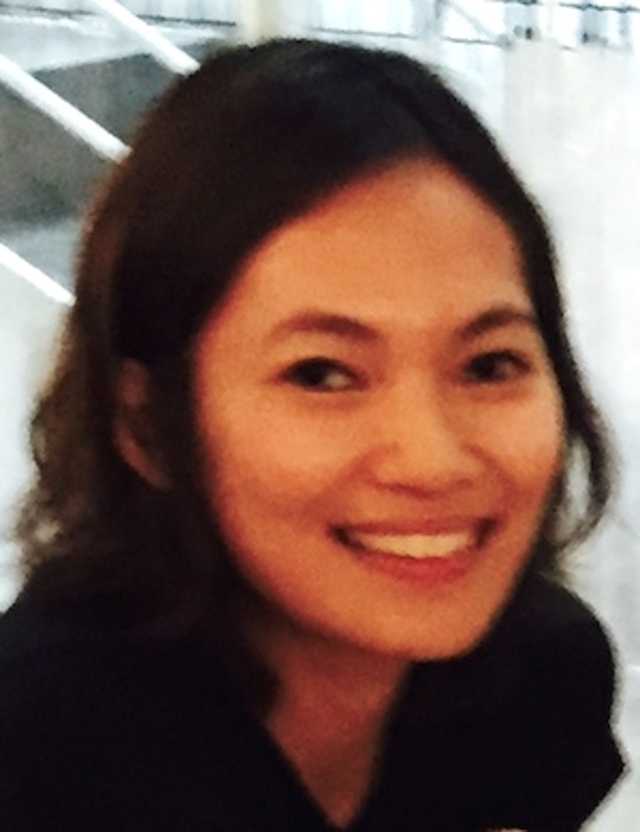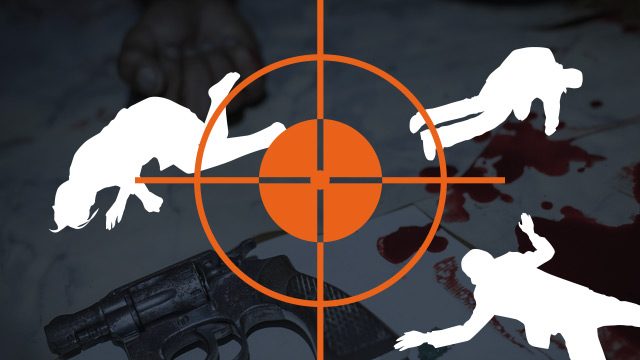SUMMARY
This is AI generated summarization, which may have errors. For context, always refer to the full article.
 Whether he is a Machiavellian, a Mafioso, or a Punisher matters less when we begin to realize that a huge part of President Rodrigo Duterte is what we make of him, and what kind of society our image of him is creating.
Whether he is a Machiavellian, a Mafioso, or a Punisher matters less when we begin to realize that a huge part of President Rodrigo Duterte is what we make of him, and what kind of society our image of him is creating.
The Philippines is becoming a society under siege by reign of terror, an ersatz “order” incompatible with order maintained by legitimate use of violence.
The result of the current administration’s war on drugs has already acquired worldwide attention barely two months after Duterte assumed office in Malacañang. With a new list of high-profile individuals allegedly involved in illegal drugs, more than 400 suspected drug traffickers killed, and thousands surrendered, it is easy to assume that, at last, the Filipinos now have a national leader who gets things done for the good of society.
An overwhelming 91% approval rating easily demonstrates this.
Yet President Duterte’s war on drugs is not just about how effective his leadership is, nor can the number of dead bodies found lying on the streets with the sign “drug pusher ako” vindicate his supporters who steadfastly defend his unorthodox, often unruly style. The war waged against drugs is also about what the Philippine society is becoming.
What happened to a nation known globally for its peaceful transition from a dictatorship to a democracy? Why is it slowly succumbing to blind faith in a strongman who incites violence?
Inspiring vigilantism
“Do it yourself if you have a gun…” Duterte’s instruction mobilized a loose network of disciples emulating his bravado with blood on their hands. The current wildfire of extra-judicial killings, in response to the President’s “shoot to kill order” is endangering what is left of respect for law and human rights activism in the Philippines.

The problem is the war on drugs proclamation was received like a divine mandate, with those waging the war described as vigilantes. The killers and those who defend them subscribe to a politico-ethical belief that they are on a mission.
It is political because they believe that they are bringing peace and order to society, and ethical because they are convinced of the righteousness in exterminating a suspected drug criminal. But the heinous deeds they commit hardly qualify as vigilantism.
Vigilantes act as “law enforcers” outside legal authority because they think the state is incapable of dealing with criminality. Duterte’s disciples on the other hand, have confidence in the newly-elected statesman. They want to be part of a repressive state apparatus, and be its unidentified and unofficial arm.
With this belief comes a malignant sense of empowerment where ordinary citizens, who felt powerless against years of unyielding oligarchic machine, can become judge and executioner sans the legal authority required to carry these roles out. Unfortunately, Duterte’s leadership style is not creating power for the people – it is simply extending the repressive state apparatus to rogue, unchecked hands. Those who respond affirmatively, despite feeling politically efficacious, are merely following orders from the person whom they deem has authority over them.
On the societal level, when social media warriors in support of Duterte endorse and aggressively defend the steady increase of death tolls, the room for conscience or recourse necessary to resist the state shrinks. They are on full alert to shut those who question extra-judicial killing as a legitimate method to deal with criminality.
This illustrates how such understanding of empowerment under Duterte’s leadership compromises many individuals’ ability to make conscientious decisions in the face of perceived insecurity. Worse, it condones the condemnation and silencing of those who can.
In such situation where law and order have collapsed, where justice has become arbitrary, power is cowardly and elementary: the ability to dominate, intimidate and take lives to show who’s “boss” and who’s “right.” It even becomes more cowardly when the executor refuses to reveal his identity. Real people power lies in the hands of those who openly resist arbitrary rule of authority and terror tactics of the state, not those who pledge allegiance to it behind masks and electronic devices.
The law says “innocent until proven guilty,” but others hear “guilty until proven innocent” under Duterte’s rule. Regardless of these perspectives, does proof still matter in this emerging era of zero tolerance?
The Philippines we want?
The voluntary members of the faceless national death squad justify their acts in the name of peace and order through the idealization of Davao City as opposed to Metro Manila’s disenchanting status. Metro Manila is Davao’s degenerate double: a filthy metropolis with high crime rate and superficial progress. Common to residents of both metropolises is a life lived in fear.
Whereas fear in Davao is normalized and often confused with the condition of lawfulness, fear in the capital is due to its bare chaos. Such lack of pretentious order prompts Duterte’s disciples to instill enough fear to make people impervious to discretionary violence and human rights violations. Their false hope is, perhaps towards the end, the whole nation would convince itself, “Soon, the Philippines will become the country the Filipinos want it to be.”
Would it? A way to dismantle the disciples’ politico-ethical creed is to attack its core: Can violent exercise of power truly create peace and order? It might help us to think about this question if we take advantage of the irony that our calamitous situation made it to the front page of the New York Times, a leading US-based international media outfit. Beyond being a source a negative pride, we should grab this as an opportunity to learn how paranoia and fear among US citizens of their neighbors gave birth to a culture of gun violence, and how their government-initiated global war on drugs turned into a spectacular failure.
Whoever thinks that the US government created a safe haven for its citizens and the world is delusional, the same way as those who think that shooting suspected criminals tackles the nationwide drug problem are mistaken.
“Kill drugs, not people.” These were the words a widow uttered after her husband, suspected of illegal drug trafficking, was shot. The reality is, one cannot kill objects and concepts, one can only kill living bodies. The war on drugs works well rhetorically because it is war against “indefinite enemies” – as long as the administration keeps a list of targets, rich or poor, and the killings continue, the war is on and no amount of pleading could make it stop.
Ultimately, Duterte’s war on drugs is a call to an unrealistic, impatient and endless mission to punish and kill “until the last drug lord, the last financier and the last pusher have surrendered or put behind the bars, or below the ground, if they so wish,” to use his words in his first SONA.
Some have either passively or actively heeded this call, cheered at every discovery of a suspected criminal’s fresh corpse. Now, we know the President has released the dark side of the Filipino people.
It is the utmost task of the remaining critical mass to rectify it with a different, more meaningful notion of power: a power that produces bloodless social justice and refuses to punish innocent lives. In its full potential, such power could even erode the idealization of a figure that generates excessive confidence to uphold a killing society. – Rappler.com
Carmina Yu Untalan is a PhD student of politics and international relations at Osaka University, Japan.
Add a comment
How does this make you feel?
There are no comments yet. Add your comment to start the conversation.